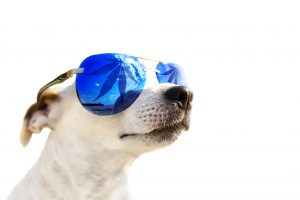Consumers Drive CBD’s Extended Boom
Glenn Polyn //April 8, 2020//
As expected, 2020 is turning out to be the year of cannabidiol (CBD) in the pet industry.
According to the Brightfield Group, a consumer insights and market intelligence firm for the CBD and cannabis industries, the pet sector is one of the fastest growing areas of the CBD market in the United States. The pet CBD market grew to over 10 times its 2018 size in 2019, according to Brightfield, and it is expected to reach $563 million by the end of this year. The forms of products containing CBD are almost limitless, with the most common being tinctures, treats, gels, powders and shampoos.
What’s pushing the demand? Consumers.
Specifically, those consumers looking to improve the quality of life for their pets, which can be suffering from ailments that range from seizures and osteoarthritis, to inflammatory bowel disease, skin allergies, nausea and more.
Almost three-quarters of current CBD consumers have pets, and almost one-quarter of the country’s pet owners already use CBD for themselves, their pets or both, according to a 2020 pet industry paper titled “Pet & CBD Report” by Nielsen and Headset, a data and analytics service provider for the legal cannabis industry.
Despite the complexities surrounding the legality of CBD in pet products, the segment continues to boom, and the Nielsen-Headset report estimates CBD pet products will represent 3 to 5 percent of all hemp-CBD sales by 2025. It also notes that tinctures currently account for nearly 70 percent of hemp-CBD pet products, followed by powders (11 percent), gels (9 percent) and treats (8 percent).
“Understanding the dynamics at play in the cannabis space and their impact on the pet industry is critical,” said Maria Lange, vice president of strategic initiatives at Nielsen, of the report’s results. “Despite open questions around regulations, hemp-CBD is exploding in the pet space.”
This growing market for CBD in the pet segment hasn’t even hit full stride, as a February article in the New York Post reported there has been a lack of long-term research into veterinary cannabis, in large part because of the legal restrictions against the plant. However, according to Dr. Zac Pilossoph, a Fear-Free certified veterinarian who serves as the chief medical officer for Florida-based Cansultants, the clinical research that has been performed—along with “subjective feedback primarily from pet owners”—for pain relief from osteoarthritis and inflammation and seizure control has been promising.
Studies on the effects of CBD are few, but they do exist. A 2016-17 study to assess the effects of CBD on dogs with seizures was conducted by Dr. Stephanie McGrath, a neurologist at Colorado State University’s James L. Voss Veterinary Teaching Hospital. The study looked at 16 dogs with intractable idiopathic epilepsy to assess the short-term effect of CBD on seizure frequency. The results, released in the June 2019 issue of the Journal of the American Veterinary Medical Association, found that 89 percent of dogs that received CBD in the clinical trial had a “distinct” reduction in the frequency of seizures.
“We saw a correlation between how high the levels of CBD oil were in these dogs with how great the seizure reduction was,” Dr. McGrath said of the results. “It’s really exciting that perhaps we can start looking at CBD in the future as an alternative to existing anticonvulsive drugs.”
With the allure of CBD’s health benefits outweighing the skepticism, consumers are seeking natural options for their beloved pets, and a wave of CBD-hemp manufacturers is looking to take a strong foothold in the pet health sector. Backed by quality control documentation, Certificates of Analysis (COA) from independent labs and/or compliance with the Food and Drug Administration (FDA) and National Animal Supplement Council (NASC) guidelines, these brands are confident that they can overcome misconceptions about CBD.
“For retailers, it’s no longer enough to offer a few CBD oil tinctures,” said Paul DiBrito, president of Paw CBD. “Customers want choices, from flavors and strengths to delivery methods and special formulas. And they want to know what they’re giving their pets is veterinarian-formulated with safe, human-grade ingredients without chemicals or added preservatives.”
Consumers have long been gravitating toward natural and organic products, such as pet food and treats. This trend has already had an influence on such CBD brands as Holistic Hound, which in December announced that its complete line of organically grown, full-spectrum hemp oils had transitioned to a “USDA-certified organic” formula.
“The higher terpenes found in our USDA-certified organic hemp oils results in purer, more potent and effective products,” said Heidi Hill, founder of Holistic Hound. “These advanced oils are also more palatable than any other on the market today, making for easy administration to both cats and dogs.”

The announcement came a few weeks after Holistic Hound said it had become first to market with a cannabigerol (CBG) product for pets. Widely considered one of the five major cannabinoids, CBG has been known as the chemical parent or “stem cell” of CBD and tetrahydrocannabidiol (THC), which is the compound that causes psychoactive effects and the “high” feeling associated with marijuana.
According to Holistic Hound, early research suggests that CBG has powerful anti-inflammatory and analgesic properties, along with affinities for the bladder, bowl and brain. It might also help ease anxiety and depression, but in a manner that has a mildly uplifting and energizing effect, opposed to the relaxing effects of CBD. These properties can potentially aid in increased brain function, focus and emotional responses, allowing CBG to be better administered throughout the day with dogs that may become weak, unsteady or dizzy from CBD.
Many retailers are taking the cautionary approach to carrying CBD products in their stores.
“Selling CBD products is not something we take lightly,” said Dawn Lamson, a nutritional consultant at One of the Family Pet Supply in Middlesex, New Jersey. “Due to its newness and all the ‘hype’ surrounding its claims, we believe it is of the utmost importance to scrutinize each brand we are put in contact with.”
One of the Family carries CBD products for a variety of brands, including River Bend CBD and Treatibles. Lamson notes that her store views CBD products as something that can benefit a pet’s overall health and well-being when used in conjunction with or as an alternative to conventional medicine for managing anxiety, arthritic pain and seizures.
“We ask ourselves, ‘Is this brand’s product in its purest form? Can they prove its purity through lab testing?’” Lamson said of her store’s vetting process. “If they do meet these requirements, the next question is how available can we make this to our customers? The brands that we endorse and recommend need to be both trustworthy and affordable.”
While dogs and cats are atop the list of pets that can benefit from CBD products, brands are not limiting themselves to those two sectors. Pet Releaf recently debuted its first CBD product line designed specifically for horses suffering from joint pain and other ailments. Equine Releaf was designed specifically for horses because of the added complications they often endure given their larger size and heavy weight.
“With [Equine Releaf], we are expanding our mission to change what healthy means for pets by extending our effort into the farm and feed market,” said Steve Smith, co-founder and president of Pet Releaf.
Texas-based Honest Paws is another brand that’s expanded its product lineup to include horses. With products that also serve dogs and cats, the brand also recently updated its packaging to a bold shade of blue with specifically colored bars at the top of each label and package to represent a personalized need, defined as Wellness, Calm, Relief and Mobility.
Founded by siblings Erik and Chelsea Rivera, the brand is also introducing its CBD topical balm that—like all Honest Paws products—is third party-tested and made with non-GMO, THC-free, full-spectrum hemp oil from plants cultivated in a USDA-certified organic farm in Colorado.
Based in Temecula, California, NaturVet makes a hemp product line for dogs and cats that provides solutions for dogs and cats suffering from a wide range of ailments, including allergies, stress and joint health.
The company has been manufacturing supplement for dogs, cats and horses since 1994, and its team of in-house scientists and veterinarians has helped create innovative products that are manufactured in the United States in a fully compliant, cGMP standard, FDA-registered facility. NASC-audited, the company’s products carry the NASC seal. The products take advantage of the many benefits of hemp, which contains phytonutrients, antioxidants, Omega-6 and Omega-3 essential fatty acids and 20 amino acids (including nine essential oils).
A 2019 entry in the pet industry is Paw CBD, a line of pet CBD products created by cbdMD to provide safe, versatile products for the support and overall well-being of dogs, cats and horses. The brand’s tinctures, treats and other products are veterinarian-formulated from non-GMO hemp manufactured to deliver the benefits of CBD without any of the risks associated with THC. Paw CBD soft chews, baked treats, tinctures, balms and peanut butter are made with the same broad-spectrum CBD that’s found in high-quality human products, combined with the textures and flavors that a dog, cat or horse will love.
Paw CBD products feature color-coded packaging by pet size to make it easy for consumers to know what strength they’re giving their pet. With research showing that CBD intake varies between different animal species and sizes, Paw CBD advises consumers start with the lowest indicated measurement and closely monitor the pet’s progress. When starting a CBD regimen, Paw CBD suggests maintaining a routine for at least two to three weeks to achieve optimal wellness.
As the CBD pet sector continues to grow, consumers will be looking for retailers to provide expert information and trusted, quality products. Savvy retailers who want to reap the benefits of the CBD boom need to stay current on the latest information and research available about CBD so they can answer customer questions.



















